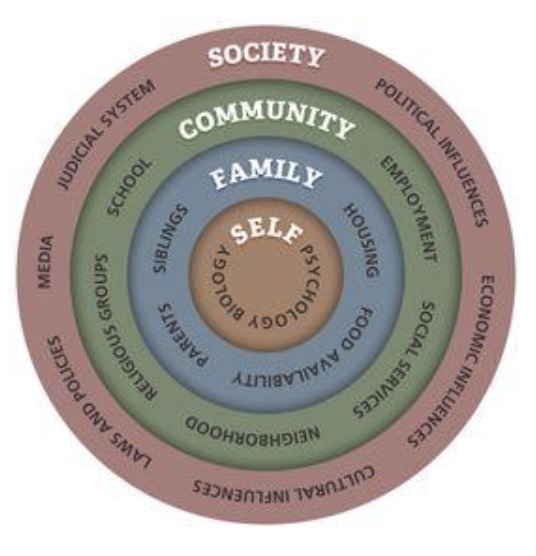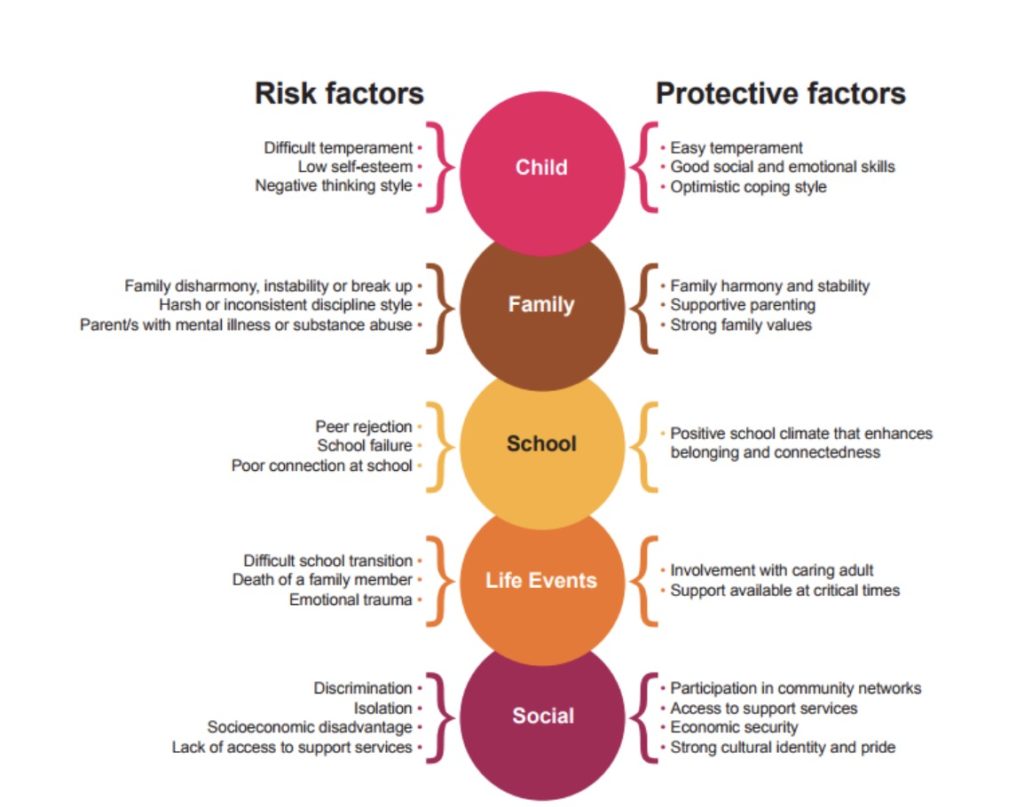by North Shore Child & Family Guidance Center | Jul 5, 2017 | In The Media
From New York Nonprofit Media, June 28, 2017
About 20 percent of adolescents ages 13-18 have a mental health problem, yet only 40 percent of those get help. The average time it takes to seek help is eight to 10 years. And 1 in 12 high school students attempt suicide, making it the third-leading cause of death for 10- to 24-year-olds, according to a recent study by the Centers for Disease Control and Prevention. Almost 160,000 youth ages 10-24 receive medical care for self-inflicted injuries at emergency departments across the U.S.
These dreadful numbers will only rise if the American Health Care Act that was recently passed by the U.S. House of Representatives, or anything like it, gets approved by the U.S. Senate and enacted into law.
If the AHCA is passed, basic protections for children and youth with pre-existing conditions, including mental illness and addictions, will be eliminated. The federal requirement that mental health be included by insurers as an essential benefit will be removed.
Federal parity law requires health insurance issuers to make sure that essential health benefits such as copays and deductibles, as well as visit limits, apply equally to mental health and substance abuse treatment and to other medical benefits. In contrast, the AHCA allows states to waive certain federal protections, such as essential health benefits, which means that they would have the option to eliminate mental health parity and addiction equity in exchange plans.
The $880 billion in federal Medicaid cuts included in the AHCA will lead to an enormous reduction in mental health coverage for millions of families. Although only five percent of children ages 5-18 are uninsured, if a bill like this passes the U.S. Senate, it would be a setback for the goal of universal health care for our children – despite the fact that safety-net programs like Medicaid were created specifically to protect all vulnerable citizens.
House Speaker Paul Ryan referred to the repeal of the Affordable Care Act as an “act of mercy.” In response, U.S. Rep. Joseph Kennedy of Massachusetts said turning a cold shoulder to the mentally ill is not an “act of mercy.” It is an “act of malice.”
Passing the AHCA would mean more community-based children’s mental health agencies will close or have to significantly restrict access to care or dilute services to balance their budgets. When those organizations emphasize cost management over care, more families struggling with mental illness or addiction could find their children in emergency rooms, costly institutional settings, on the street, in jail, or worse.
The looming threat of a national health insurance policy that strips away parity and equity for mental health and substance abuse is an attack on us all. It discriminates against the most vulnerable and is a clear denial of civil rights.
Treatment is the most effective way to help.Treatment requires insurance coverage, just like any other health problem. Limiting access to care compounds the public health challenges of mental illness and addiction. The answer is not Obamacare or Trumpcare; we need bipartisan care that is affordable, effective and accessible.
Andrew Malekoff is the executive director of North Shore Child & Family Guidance Center, which provides comprehensive mental health services for children and their families.

by North Shore Child & Family Guidance Center | Jun 28, 2017 | Blog
The Biopsychosocial Model of Health offers a lens through which mental health practitioners may assess the needs of their clients. This concept suggests that an individual’s mental health consists of biological, social, and psychological factors (Kidsmatter). To achieve positive mental health, all three facets must be in balance. Good social skills, positive relationships with family, friends, and peers, and strong coping mechanisms are all key to maintaining this balance. These tools develop in children over time resulting in a steady acquisition of new skills as they mature.
Active nurturing by parents has been shown to increase positive outcomes for their children. In fact, when kids are shown love and support, they demonstrate a more balanced mental health profile than those who lack the same (Kidsmatter). Risk and protective factors also play a role in children’s mental health (Kidsmatter). These are situational elements that may positively or negatively skew an individual’s delicate mental health balance, dependent on the circumstances surrounding them. The first graphic below indicates how risk and protective factors can influence children. The self is in the center because it is also influenced by the family, community, and society that surround it. The second graphic further exemplifies how children can be impacted by those that surround them by depicting the risk and protective factors that are involved. For example, children can be impacted by their families if there is harmony or disharmony. Harmony is an example of a protective factor and disharmony is an example of a risk factor. The presence of a risk or protective factor does not guarantee that your child is at risk or protected from mental health imbalance, but it increases the significance. This can be seen in the charts below (Kidsmatter; Kearney, 2015):


Despite this, there are some instances where regardless of the nurturing that a child receives, they may experience a mental health imbalance due to difficulties within their individual nature. For instance, the child may have more difficulty expressing and coping with their emotions, and thus, may have a difficult time adapting to new and different situations.
Early detection of children’s mental health difficulties is key. This offers parents the opportunity to seek out the most appropriate help for their child. Therapeutic family support can aid parents in their efforts to increase protective factors in their child’s life. Families who find effective resolutions for their child’s mental health challenges early, may reduce the likelihood of negative effects (Kidsmentalhealth, 2009).
If you or your child is in need of support, contact the Guidance Center at 516-626-1971. Our trained clinicians can assist your family in setting your child up for successful emotional regulation throughout their life.
How mental health difficulties affect older children (primary years). (n.d.). Retrieved June 28, 2017, from https://www.kidsmatter.edu.au/families/about-mental-health/should-i-be-concerned/how-mental-health-difficulties-affect-children
Children Mental Health. (2009). Retrieved June 28, 2017, from http://kidsmentalhealth.org/
Kearney, B. (2015, January 21). Youth Development. Retrieved June 28, 2017, from https://www.pinterest.com/pin/502151427177487993
![Grant for North Shore Child & Family Guidance Center]()
by North Shore Child & Family Guidance Center | Jun 27, 2017 | In The Media
Blank Slate Media, June 23, 2017

![Grant for North Shore Child & Family Guidance Center]()
by North Shore Child & Family Guidance Center | Jun 26, 2017 | In The Media
From Long Island Business News, June 23-29, 2017

(From left) John Grillo and Andrew Malekoff took part in the dedication ceremony for Johnny’s Garage, a North Shore Child & Family Guidance Center facility.

by North Shore Child & Family Guidance Center | Jun 22, 2017 | Blog
On the heels of Father’s Day, it is worth thinking about fatherhood and mental health. Becoming a parent can be a scary prospect for a man. While it is commonly acknowledged that women may experience postpartum depression, research states that 10% of new dad’s also experience postpartum depression and 25% of men experience depression within the first year of having a child (Postpartum, 2017; Schaeffer).
Believe it or not, in the month leading up to the childbirth, the father’s testosterone levels decrease and prolactin, vasopressin, and other hormones continue to increase (Schaeffer). Scientists speculate that this is due to a mixture of stress and emotions. As a result, a man becomes more prepared to be a father because he has an increase in sensitivity to: crying, to creating an emotional bond, and to catering to other’s needs. The increase in sensitivity also makes a father more prone to clinical depression and mood disorders (Schaeffer).
It is important to pay attention to dads’ mental health because it can impact the well-being of the entire household. There is still a great deal of stigma surrounding men’s mental health. In America, traditionally, men are tasked with providing stability and anchoring the family. Culturally, they are often less likely to share or express their feelings. Nevertheless, they face many emotional challenges as a parent. Sadly, many men feel that mental health problems are a sign of weakness and often do not seek help. Consequently, there are likely a lower number of reported cases of postpartum depression for men.
It is proven that fathers who are positively involved in their family’s lives, better their children’s lives, their spouse’s life, and their own well-being (Schaeffer). Keeping this in mind, here are some tips for a father to live a happier life:
- Set aside time for yourself. It’s important to schedule a little “you time” to decompress. Do things that make you happy: hobbies, reading, seeing friends.
- Stop caring so much about what others think of you.
- Remember that there is no such thing as perfect – so let the little things go!
- Communicate. Reach out to your friends and family and be honest about your emotions. Practicing this is great for yourself and teaches your kids good coping skills.
- Live a healthy life style by eating healthy and exercising regularly. It’s proven that running and lifting weights can be beneficial for your mental health (Menshealth, 2017).
- Laugh! Laughing is proven to boost your mental health and well-being.
International Father’s Mental Health Day. (2017). Retrieved June 22, 2017, from http://www.postpartum.net/get-help/resources-for-fathers/ifmhd/
Schaeffer, C., PhD. (n.d.). The Mental Health of Dads Needs Attention. Retrieved June 22, 2017, from https://www.seleni.org/advice-support/article/its-time-to-support-fathers-mental-health
6 ways to improve your mental health. (2016, May 17). Retrieved June 22, 2017, from http://www.menshealth.co.uk/healthy/6-ways-to-improve-your-mental-health






